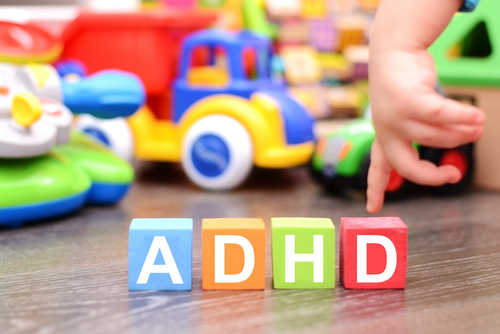Attention deficit hyperactivity disorder (ADHD), previously referred to as attention deficit disorder (ADD) is listed in the Diagnostic and Statistical Manual of Mental Disorders, Fifth Edition (DSM-5) as neurological disorder. ADHD is characterized by three main symptoms: inattention, hyperactivity, and impulsivity. Most children with ADHD experience all three symptoms. Prior to 1994 a teen with the main symptom being inattention would have been diagnosed with ADD, whereas now the formal diagnosis for this is: ADHD, Predominantly Inattentive Type. It may also be referred to as ADHD without hyperactivity or Inattentive ADHD. Attention deficit hyperactivity disorder is extremely common. The Centers for Disease Control and Prevention (CDC) estimates nearly 3.3 million children between ages 12-17 have been diagnosed with ADHD.
Signs and Symptoms
The signs and symptoms that can occur in a child with ADHD can begin in children as young as five years old. Symptoms will often range in severity and can differ depending on one’s gender. Below are examples of common symptoms that could arise in a child with ADHD, provided by the American Psychiatric Association (APA):
- Failure to meet deadlines (e.g. does not complete homework on time)
- Inattention to detail
- Unable to engage in activities that require prolonged attention
- Mind constantly wandering/ does not listen when directly spoken to
- Misplaces belongings frequently
- Regularly and mindlessly fidgeting
- Little or no patience
- Easily distractible
- Organizational difficulties
- Excessive talking
- Restlessness
A young person who is diagnosed with ADHD will exhibit at least five of the symptoms from the above list, lasting for six months long or longer, in multiple settings. The symptoms associated with ADHD that are experienced by a child will interfere with his or her ability to appropriately function in his or her daily life.
Diagnosis
The diagnosis process for ADHD is rather complicated, as there is no single test for diagnosis, and symptoms will vary from child to child. The number of young people that are incorrectly diagnosed and subsequently prescribed medication for ADHD in America is huge. For example, it is not uncommon for symptoms of anxiety to appear as manifestations of ADHD, when in reality they are due to an anxiety disorder. The medications that are prescribed for teens that have ADHD versus those who suffer from anxiety disorders are vastly different. Furthermore, the types of medications that are often prescribed to a young person with ADHD can be detrimental to a child who has an anxiety disorder that does not require medication. It is essential to have a mental health professional evaluate a child that may be struggling with ADHD in order to obtain the proper diagnosis, so as to ensure the most effective treatment.
Treatment
There are many treatment options available in Los Angeles, California for a young person with attention deficit hyperactivity disorder. The best place to start is to consult your child’s pediatrician. Most pediatricians will be able to point you in the right direction and connect you with a mental health specialist that is within their professional network. Additionally, word of mouth recommendations can yield positive results, so it may behoove you to check with your family and friends and see if anyone has any recommendations. There are also a variety of online resources (e.g. Psychology Today) that can help you find a mental health provider specializing in ADHD in California. Every child is different and will require a customized treatment plan.
Disclaimer:
The information above is provided for the use of informational purposes only. The above content is not to be substituted for professional advice, diagnosis, or treatment, as in no way is it intended as an attempt to practice medicine, give specific medical advice, including, without limitation, advice concerning the topic of mental health. As such, please do not use any material provided above as a means to disregard professional advice or delay seeking treatment.


